Pisi Linux
Pisi Linux is a Linux distribution based on Pardus Linux and focused on ease of use, stability, and high performance. It uses the PiSi package manager and aims to provide a simple yet powerful operating system for daily use.

Pisi Linux: Lightweight Linux Distribution
Pisi Linux is a Linux distribution based on Pardus Linux and focused on ease of use, stability, and high performance. It uses the PiSi package manager and aims to provide a simple yet powerful operating system for daily use.
What is Pisi Linux?
Pisi Linux is a desktop-focused Linux distribution that is based on Pardus Linux. It is developed with an emphasis on stability, speed, and ease of use for general purpose computing.
Some key features of Pisi Linux include:
- Uses the lightweight Xfce desktop environment by default, providing good performance on older hardware while still being visually appealing
- Based on the rock-solid foundations and components from Pardus Linux, an OS focused on reliability and stability
- Uses the PiSi package manager which features dependency resolution and easy software installation/removal
- Includes useful everyday applications like a browser, office suite, media players etc. by default in a minimal yet functional selection
- Carefully optimized and tweaked for increased responsiveness, especially on low resource systems
- Backed by an active community developing and enhancing the distribution
- Frequent software updates and good hardware compatibility with easy driver installation
In summary, Pisi Linux aims to deliver a no-frills yet powerful Linux distro for daily desktop computing. Its goals are reliability, ease of use and good out of the box performance.
Pisi Linux Features
Features
- Based on Pardus Linux
- Uses PiSi package manager
- Focused on ease of use
- Aims for stability and high performance
- Provides simple yet powerful OS for daily use
Pricing
- Open Source
- Free
Pros
User-friendly and easy to use
Stable and relatively bug-free
Good hardware support
Fast and lightweight
Large repository of packages
Cons
Limited community and developer support
Less packages available than major distros
May lack support for more obscure hardware
Not many configuration options
Official Links
Reviews & Ratings
Login to ReviewThe Best Pisi Linux Alternatives
Top Os & Utilities and Linux Distributions and other similar apps like Pisi Linux
Here are some alternatives to Pisi Linux:
Suggest an alternative ❐Zorin OS
Zorin OS is a Linux distribution designed specifically for new Linux users coming from Windows or macOS backgrounds. It is based on Ubuntu and uses the GNOME desktop environment, but has been customized with themes, layouts, and tweaks to provide a familiar experience for those accustomed to other operating systems.A...
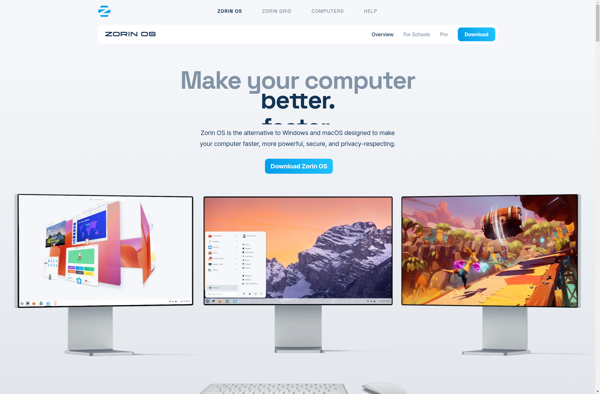
AntiX
antiX is a lightweight Linux distribution based on Debian GNU/Linux. It aims to provide a fully functional yet lightweight operating system that can run efficiently on older hardware.Some key features of antiX include:Uses the IceWM window manager for speed and low resource usageIncludes useful applications like Firefox ESR web browser,...

Lubuntu
Lubuntu is a Linux distribution based on Ubuntu that uses the lightweight LXDE desktop environment. Some key facts about Lubuntu:It has lower system requirements than standard Ubuntu, making it a good choice for older computers or hardware with limited resources.Uses the LXDE desktop environment which is lightweight, fast, and energy-efficient.Includes...
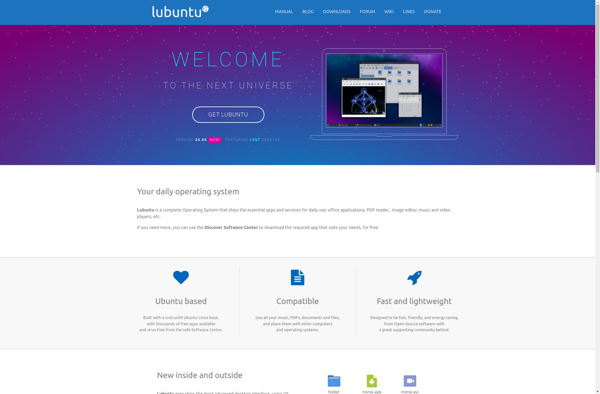
DietPi
DietPi is a Debian-based Linux distribution optimized specifically for single-board computers like the Raspberry Pi. It focuses on being lightweight and having a small resource footprint, making it well-suited for low-powered devices.Some key features of DietPi include:Lightweight system: Uses optimized software packages and settings to reduce RAM and CPU usage....
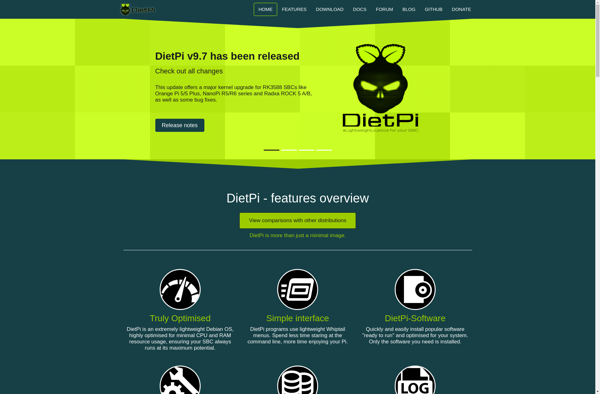
GhostBSD
GhostBSD is a BSD-based operating system that aims to provide a user-friendly desktop operating system experience built on top of FreeBSD. It comes preinstalled with the lightweight MATE desktop environment which provides a traditional desktop layout for productivity.GhostBSD makes it easy for Linux users to try out the BSD operating...
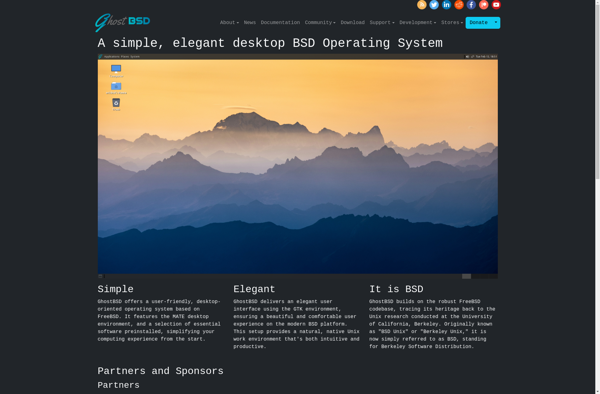
Bodhi Linux
Bodhi Linux is a lightweight Linux distribution based on Ubuntu that uses the Moksha desktop environment. Moksha is a continuation of the Enlightenment 17 desktop environment which focuses on resource efficiency and minimalism while still providing an attractive and usable interface.Some key features of Bodhi Linux include:Very low memory and...
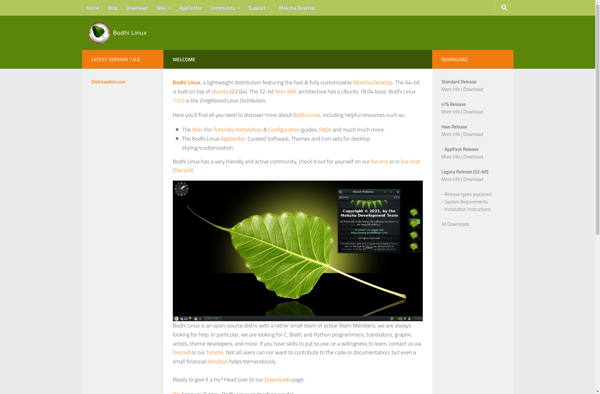
AlmaLinux
AlmaLinux is a 1:1 binary compatible fork of RHEL, sponsored by CloudLinux. It was created in response to Red Hat's decision to discontinue the CentOS platform that many businesses relied on. AlmaLinux aims to fill the gap left by CentOS and serve as a free, community-driven alternative to RHEL.Some key...
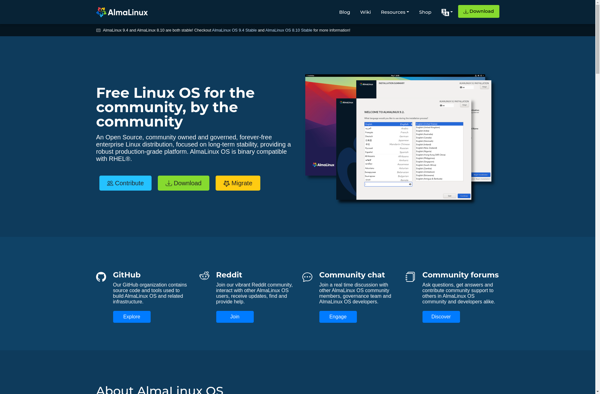
Peppermint OS
Peppermint OS is a lightweight Linux distribution based on Lubuntu that integrates cloud and web applications into the desktop. It uses a hybrid concept that allows web and cloud applications to integrate with native desktop apps. The goal is to make transitioning between locally installed software and internet-based applications very...
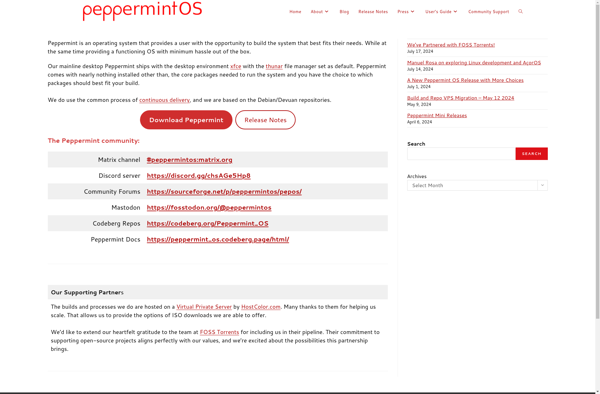
Xubuntu
Xubuntu is an official community edition of the Ubuntu operating system that comes with the Xfce desktop environment preinstalled instead of Ubuntu's default GNOME desktop. Xubuntu uses the same software repositories as Ubuntu, so it is just as easy to use and provides a similar user experience, but it is...
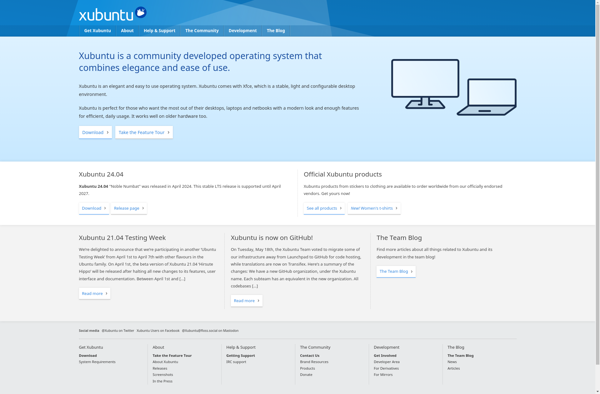
Mageia
Mageia is a free and open-source Linux distribution that has its roots in the Mandriva Linux (formerly known as Mandrake Linux) project. After Mandriva S.A, a French company, went bankrupt in 2011, many of the core Mandriva developers decided to fork the distro to create Mageia, which would be community-driven...
